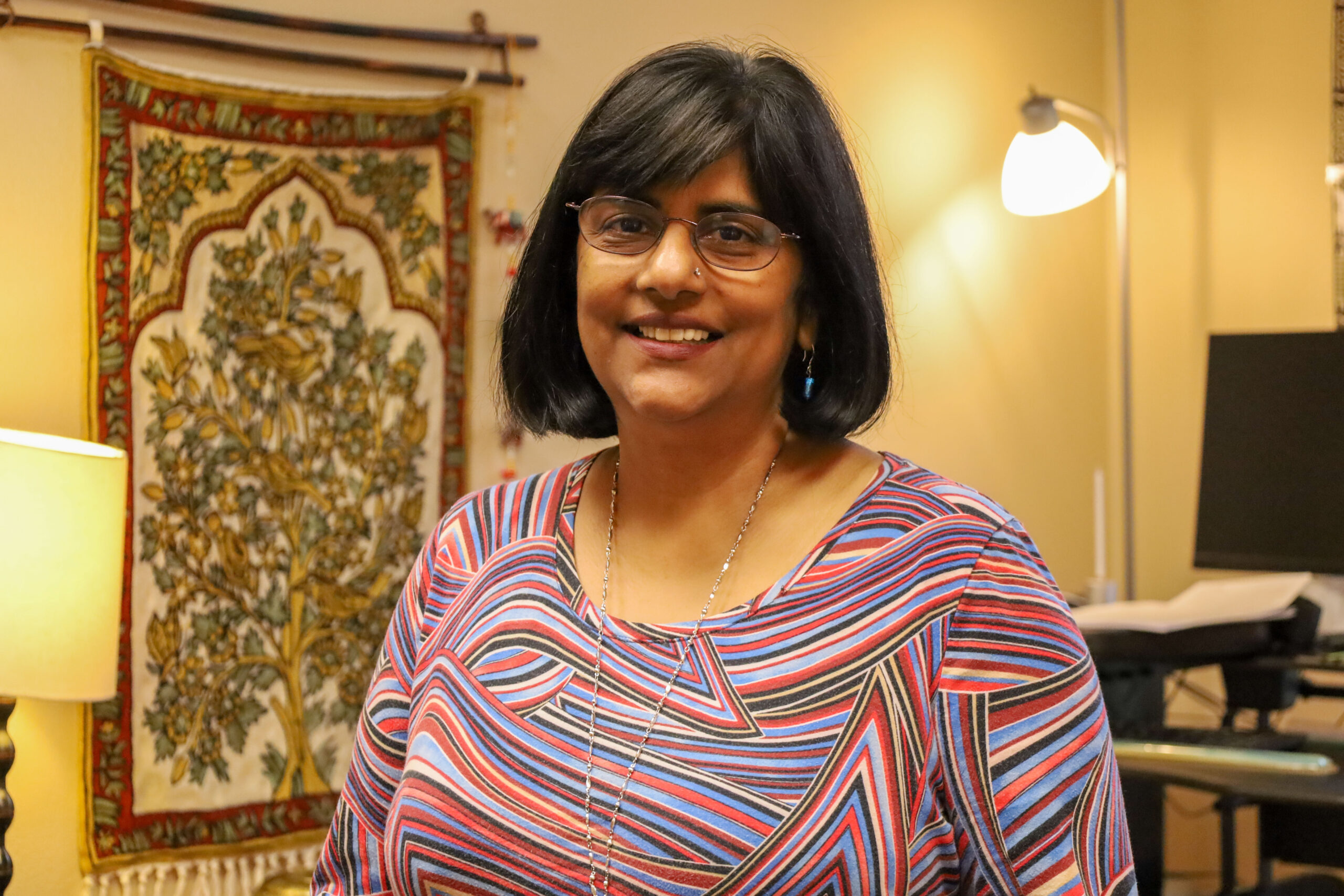Robina Sommers transitioned into higher education after teaching at public elementary and high schools for 30 years. She joined Goshen College faculty this fall as an assistant professor of education.
In 2017, Sommers received an ADHD diagnosis that brought on a new set of challenges to her job as an educator. I sat with Mrs. Sommers to get her personal and occupational journey with ADHD.Sommers’ diagnosis came rather late in her life. She believes the delay was rooted in cultural discrepancies and educational expectations in her upbringing.
“Growing up in India, everything was so structured that there was no room for deviation. If you didn’t do a good job academically, you got in big trouble. Everything was memorization and studying, so it lent itself well to success, even though I had ADHD.”
As she aged, Sommers found it difficult to keep up with the organizational demands of everyday life and her teaching career. She would get students with ADHD and noticed similarities, but found it difficult to empathize with them. “In my head I would think, just control it. Of course, I know now that is like telling someone, ‘Stop limping!’ It is that cut and dry; it really is.”
She thanks her husband for his encouragement to go through with an ADHD evaluation. Once she received her diagnosis, the recommendation was to get on medication. “I felt like such a failure,” she said.
However, she says that medication has been beneficial. After her first day on medication, she recalled everything “slowing down” and was amazed by how easily she could focus on tasks and conversations.
Sommers also noticed changes in her relationship with herself. When she went in for a follow-up appointment, the doctor asked about any changes she noticed, and she responded, “A huge decrease in self-loathing.”
Change was also happening in the classroom- — she found a new sense of empathy. Connecting with and helping her neurodivergent students came much easier.
Sommers offered one-on-one conversations with students she noticed were struggling and restructured her lectures to keep her students engaged. Now, she encourages students to keep cell phone use to a minimum, handwrite their notes, and even holds a few body-doubling work sessions. These small changes have also been helpful during her time at GC.
Sommers is a firm believer that ADHD is not always a barrier. “The really good thing about having ADHD and being a teacher is that nothing escaped me. I noticed everything.” She thanks her ADHD for her innovative music approach and her ability to think fast in an emergency.
I asked Sommers if she would like to leave students and educators with a piece of advice, and she said, “I think it is really hard for people to say I need help, no matter the issue. When things are out in the light, they’re easier to deal with… when we’re all alone, [it is much harder].” Sommers would be interested in having a support group for people on campus with ADHD. She believes that transparency and community can do great things for people struggling.
Sommers concluded our interview by playing her salsa remix of “Oh Sing to the Lord a New Song” on the piano, putting her on-the-spot thinking and musical innovation on display.




